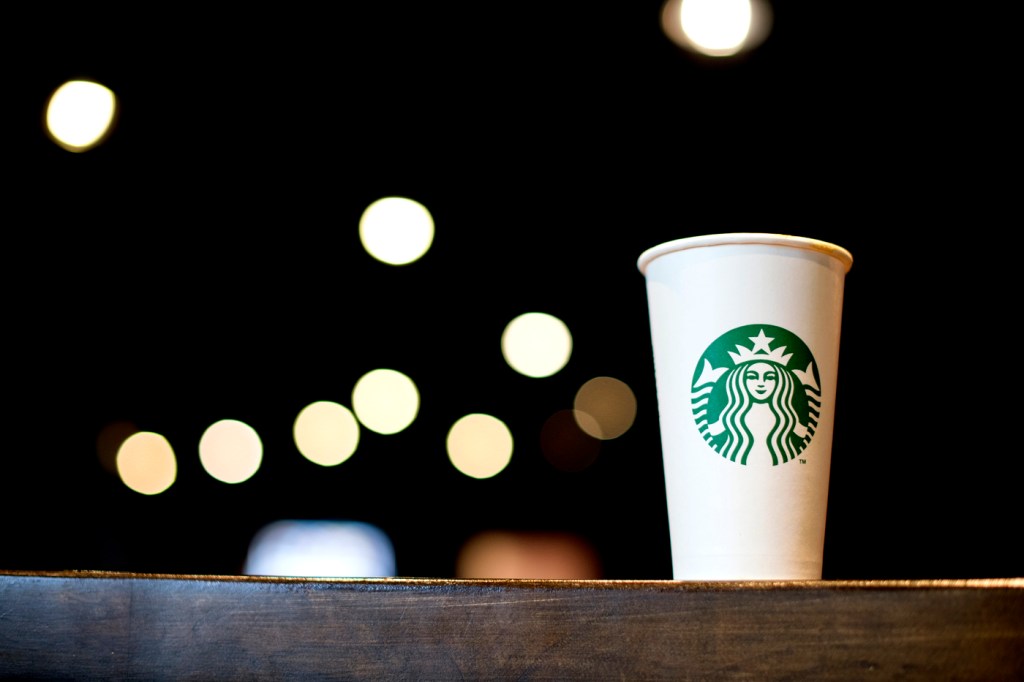Is Starbucks’s olive oil infused coffee a healthy combination? Northeastern food expert breaks down the company’s latest concoction

Starbucks is rolling out a new beverage concept: coffee with a spoonful of extra virgin olive oil.
The coffee company this week unveiled its new coffee line, called Oleato, which includes three olive oil blended beverages that will be available at Starbucks locations in Italy beginning this week. The product line will be introduced to select regions later in the spring, including the U.S.
The world’s largest coffeehouse described the mere infusion of 120 calories of olive oil into its caffeinated beverages as a “transformational innovation” in coffee.
What’s so transformational about a spoonful of olive oil? It may remain to be seen. But the concept is an example of how companies are capitalizing on health trends without promoting, or making explicit claims about, the health benefits of certain food products, says Darin Detwiler, Northeastern food safety expert and associate teaching professor.
Detwiler says Starbucks’ latest concoction is also an effort, perhaps, to seize on a demand for alternatives to dairy-based mixtures that may not be a draw to more health-conscious consumers.
“It’s gotten people asking, ‘Wait, why are you adding this? This is crazy, right?’” Detwiler says. “But there are a lot of current health trends promoting an increase in ‘good’ fats— certain fats like virgin olive oil, that are actually beneficial in terms of caloric intake, metabolism and digestion.”
Indeed, Starbucks steered clear of making any specific claims about the health benefits of olive oil in their announcement. But the company’s new mixtures come amid increased enthusiasm for olive oil—a liquid fat extracted from olives traditionally found in the Mediterranean Basin—that has spread across social media in recent months.
The phrase “drink olive oil” went viral on the video-sharing platform TikTok last year, with users promoting its purported “anti-inflammatory” effects, and there’s been seemingly endless coverage of the health benefits of consuming the oil that’s just a Google search away.
Indeed, all of this enthusiasm is due in part to rising awareness among consumers about those potential health benefits. Incorporating olive oil, which may be linked to reduced risk of certain kinds of cancer and heart disease, into a healthy diet is recommended by many health experts.
But Starbucks is taking a different tack, using the new beverage concept as an opportunity to tell a story about the company’s origins. After purchasing the company in the early 1980s, Starbucks CEO Howard Schultz converted what was then a coffee bean store into a coffeehouse chain—a move inspired by an encounter Schultz had with Milan, Italy’s coffee culture around the same time.
“They are not making any kind of health claim whatsoever, thus to avoid the scrutiny of the [Food & Drug Administration],” Detwiler says. “If you make a claim, you better be able to substantiate that claim. So instead they’re putting spin on it, saying these new drinks take us back to the roots of these different Italian coffee traditions.”
As part of a “continuous search for inspiration,” the company said that “enjoying a spoonful of extra virgin olive oil each day as an uplifting ritual” had been part of family tradition in Italy for generations.
Schultz recounted that early trip to Milan in 1983 that turned him on to the idea of the Starbucks franchise in the company’s product unveiling this week.
“It was that trip that inspired me to bring the ritual of handcrafted espresso to Starbucks and to America. Oleato represents the next revolution in coffee that brings together an alchemy of nature’s finest ingredients—Starbucks arabica coffee beans and Partanna cold pressed extra virgin olive oil,” he said, in a statement.
Detwiler says the move may also yield financial fruit.
“I would imagine that they’re looking at the cost of doing this, and how much they plan to increase the cost of their coffee,” Detwiler says. “My thought is that this is a very economical way for them to add fat and calories to coffee, while at the same time promoting this narrative of ‘disruption.’”
Tanner Stening is a Northeastern Global News reporter. Email him at t.stening@northeastern.edu. Follow him on Twitter @tstening90.






